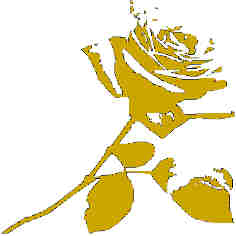
The German Thai Link |
Family |

 |
|
 |
Perhaps the best way to comprehend Thai social values is to focus on its basic unit, the Family, and in particular the rural family in its typical village setting.
Generations living under one roof, or at least under several roofs within the same compound; and it is here that the Thai child learns codes of behavior that will guide him throughout much of his later life, whether it is spent in the village or beyonds. In a village, home is usually a simple wooden house rased on posts; domestic animals like buffalos, pigs, and chickens are kept below, and the family lives above, often in a single room.
There is little privacy, though this is not as highly regarded as in Western countries, and the communal lift style instills a strong sense, of social harmony in which tact, compromise, and tolerance are essential. The father is regarded as the leader, but the mother also plays a significant role, particularly in the family finances.
When small, children are treated permissively by various members of the family, which as likely as not will include grandparents and sometimes more distant relatives as well. Respect for elders is taught very early, however, and by the time a child walk s he is aware of his position in the family hierarchy, a distinction that applies not only to the relationship between parents and children but also to that between siblings of different ages.
This same delineation of roles also applies to the wider world outside the family and will remain deeply ingrained throughout life, thus explaining the reluctance of younger Thais to oppose or otherwise confront a senior during their subsequent careers in business or government.
A sense of responsibility is also inculcated in early childhood. Each child is assigned certain duties according to age and ability-feeding livestock, leading the family buffalo to graze in nearby pastures, taking care of younger brothers and sisters while parents are at work in the fields. As they grow older, responsibilities increase and they are allowed to paticipate in family discussions, with their opinions taken into account when important decisions are made.
One of the prime responsibilities placed on children is that of taking care of parents in their old age, a prominent feature of the Thai concept of family. There is no felling of being inconveniened by this duty of caring for aged parents; on the contrary, their acquired wisdom gives them an honored place in the household, and their counsel is actively sought in teaching their grandchildren and great-grandchildren to be responsible adults with the same traditional values.
|
Last modification 06.03.2004 13:40 |
|
| This Page is part of a Frame-Set. If you hit this page directly for any reason, please let us transfer you to the Main Index. | |